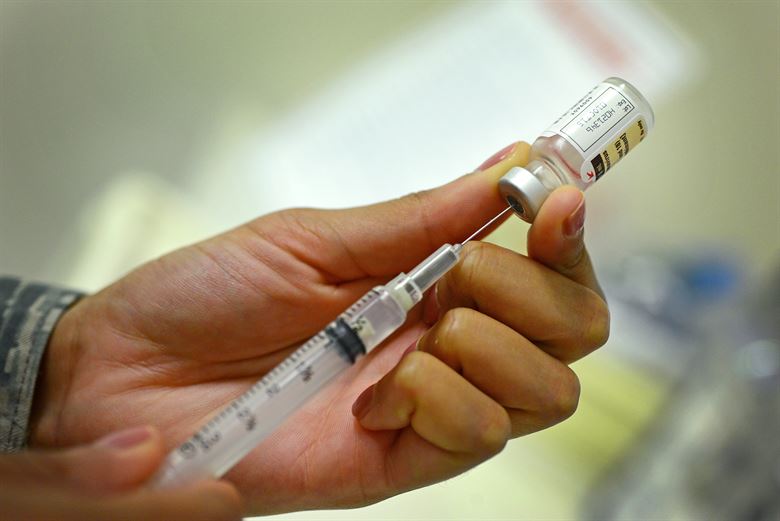142,300 people died due to the consequences of the measles virus in 2018, which is 15% more than in the year before, according to the World Health Organisation (WHO).
Between 2000 and 2016, the number of deaths due to measles dropped from 550,000 to about 90.000 thanks to strong vaccinations, but since 2017, the number has been going up again.
"The fact that a child can die from a disease that can be prevented with a vaccine is a disgrace and a collective failure to protect the most vulnerable children," said Tedros Adhanom Ghebeyesus from WHO about the new figures, reports VRT NWS.
In 2018, the WHO counted 9.7 million cases of the highly contagious measles virus, which 29% more than in 2017. Of those infected, 142,300 people did not survive, which is an increase of 15%.
Most of the deaths occurred among children under the age of 5, who are the most likely to develop the disease. Middle ear infections or pneumonia are often complications of the disease.
The WHO points to the low vaccination rates in some of the poorest and most difficult regions in the world. Congo, Liberia, Madagascar, Somalia and Ukraine together account for about half of all cases.
Related News
- Crisis plan against doubts about vaccinations to be launched by Flanders
- Measles on the rise in Belgium and across Europe
- Measles outbreak in Walloon prison continues
However, the United States had its highest number of measles infections in 25 years in 2018, and in Europe, the WHO no longer counts the Czech Republic, Albania, Greece and Great Britain as 'measles-free' countries after big outbreaks in 2018, and international vaccination figures have been stagnating for about ten years.
To avoid outbreaks, 95% of the global population should be vaccinated twice, but only 86% received the first vaccine, and less than 70% went back for the second one in 2018.
While insufficient access to health care is the biggest problem in Third World countries, more developed countries suffer from increasing religious or philosophical opposition to vaccinations, often fuelled by false information about the consequences of vaccines online.
In June 2019, a survey showed that over one-fifth of Belgians think vaccinations are not entirely safe.
Maïthé Chini
The Brussels Times

